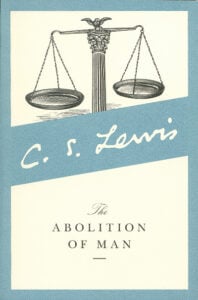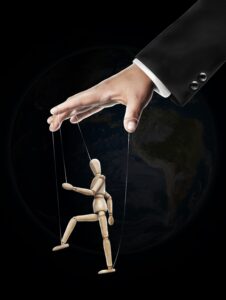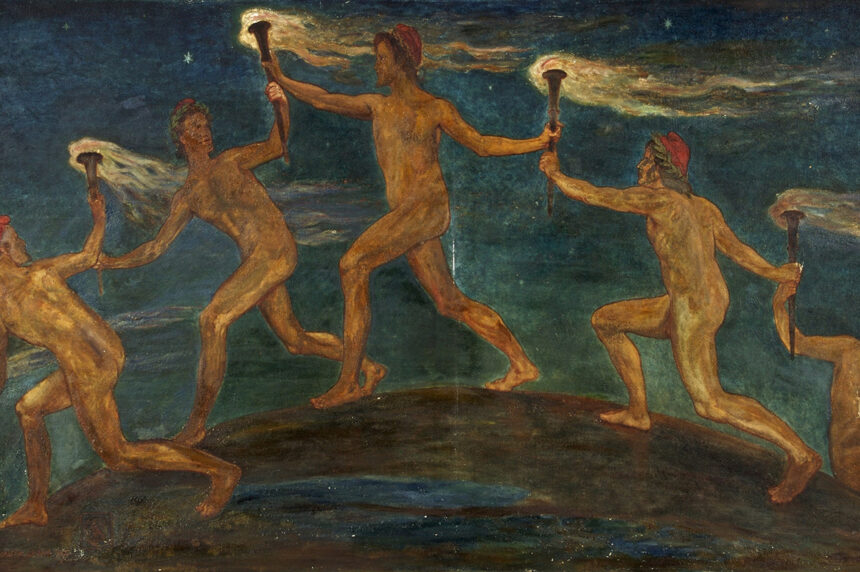Michael Oakeshott and C. S. Lewis on change and tradition
Learning about philosopher Michael Oakeshott in the November issue of Chronicles led me to read his 1956 essay, “On Being Conservative.” I found there a charming voice and an original thinker. In the first half of the essay, Oakeshott is describing what he calls the conservative disposition. In the process of rendering that sketch, he talks about what disturbs the conservative mind: namely change and innovation. Change, the conservative admits, is inevitable and must be endured, but it ought to be organic and digested in small doses. Innovation, however, is more than mere necessary change. It is trying to make an alleged improvement in the way things are and in the way they have been for who-knows-how-long. And in the worst case, it is the grand dreamer who wants to organize the whole human race in some new and better way. Of this kind of activity, says Oakeshott, the conservative disposition should be wary.

In his 1943 lectures on the abolition of man, C. S. Lewis warned that the traditional man—one who believes in objective reality and a natural law that orders both the visible and invisible realms—is under lethal attack from two types of enemies who have emerged in the modern world: the innovator and the conditioner. For Lewis, too, the innovator is that entity or individual who takes our inherited grasp of reality, which has been preserved in the form of traditional values and practices, and tries to alter those guideposts, or even to overhaul them, so as to make them fresh and current.
The innovator may have any number of motives. He may be a businessman simply looking to create a new market for his new widget. His innovation in that case is to generate a need where none had previously existed and where, perhaps—had his actions been governed by traditional values and an adherence to reality—none ought ever to have existed. Skinny jeans come to mind. Or Roundup-resistant wheat.
But the profit motive is not the only driver of innovation. Some are motivated instead by a desire to make adjustments in the inherited moral order. Consider for instance a legislator, judge, teacher, or filmmaker who does not like a particular inherited value—say, the importance of the heterosexually based family unit—and decides to make laws or judgments or lectures or films that undercut that traditional value by broadening it or canceling it or redefining it in language that divests it of credibility.
In order to perform such an innovative operation, the innovator must draw on one part of our inherited values to attack another. Slogan logic, like “Love is love,” is used to defend the moral innovation. The value of love—not properly defined, of course—is meant to trump the value of a stable, procreative marriage. The innovator, to his credit, is still trafficking in values; he has not yet plunged into the abyss of nihilism. It’s just that he wants to serve himself selectively from the traditions he has inherited. Some of those values he likes, some he does not. Some cause an irritation or a constraint that he simply will not endure. Therefore he tweaks. He innovates.
The traditional man, however, does not. Given that he understands his inheritance to be a representation of reality, he resigns himself to that knowledge. As with the innovator, he may not like some of what he has inherited, but he does not see himself as being at liberty to change it. He does not pick and choose among the body of traditional values but takes them rather as a whole, as the cumulative best that his collective forbears have been able to perceive and pass on about the nature of reality.
None of this is to say that the traditional man is necessarily a better or kinder or smarter person than the innovator. He is simply more accepting of reality. If he violates a traditional value, or even merely has distaste for it, he is more inclined to see that reaction as a defect in himself and not in the value in question. The innovator is just the opposite. If he finds a particular received value not to his liking, he assumes that such a value needs tweaking or canceling. In other words, for the innovator, the measure of the moral order amounts to nothing other than his moral preferences, however ill-formed they may be.
For the libertarian innovator, this might be enough. “Leave me alone to make my morality, and I’ll leave you alone to make yours.” But for the woke innovator, the “live and let live” adage is woefully unsatisfying, because woke ideologues feel the need to impose their moral innovations on everyone else in society—whether by laws, by media narratives, by Twitter wars, by emergency pandemic policies, etc. When they engage in proselytizing (or iron-fisted implementation) of a particular innovation—say, mandating face masks or critical race theory curricula—there is a melding of minds in the public square, if only just to participate in the group virtue signaling. But that kind of factional unity is merely temporary because the underlying moral sense is twisted or missing. The innovation flames for a while but eventually burns itself out, as all nonrealities are destined to do.
With time, as waves of innovation spread throughout a society, such as we have witnessed over the last many decades in the West, a curious thing happens to the innovator himself: with each rejection of a piece of his inheritance, he gives up more and more of reality’s turf in his existence, and his ultimate isolation from others grows steadily greater. He lives truly in a world of his own, much of which he cannot share with the traditional man nor even with other innovators, as each innovator must ultimately follow his own moral code, not one of which is exactly the same, on all counts, as anyone else’s.
Lewis likened the innovators’ plight—and the danger it presents—to that of branches revolting against the trunk of a tree. If the branches succeed in their attack, they lose their own life as well and become mere kindling for the fire.
A man off-kilter, a man unmoored from reality, is more easily manipulated than a traditional man, who is grounded in the history of the race.
The traditional man, on the other hand, gives up none of the hard-won understanding of reality bequeathed to him by those who came before. How could he? It’s not his to relinquish. And a society of traditional men is not isolated one from another by separate, private value systems. In a traditional society, the same umbrella of inheritance covers (and governs) kings and paupers alike. Whether they as individuals are good men or not, all are measured by the same code. Further, their shared understanding of what is true extends backward in time to those from whom they received that wisdom; thus a traditional man in a traditional society is cut off neither from past generations nor from present neighbors.
Ours, of course, is not a traditional but a modern society. To be sure, there are traditional persons in it, but they are surrounded by innovators and by those who have accepted, in various configurations, the innovations of others. One of the effects, then, of modernity is to fracture, and a fractured society is certainly more susceptible to Lewis’s other, more ominous threat—namely, the conditioner.
If the innovator is something of an inconsistent hybrid, holding an idiosyncratic and irrational blend of the traditional and tweaked or newly invented values, the conditioner is not nearly so confused. In Lewis’s schema, the conditioner does not pick and choose among traditional values, looking either to endorse or to cancel. Instead he throws out the very concept of value itself. A value, or moral precept, for the conditioner, is a quaint artifact but has no place in a technocratic present.
Values emanate from man’s grasp of an immaterial order that underlies his existence. But the conditioner, having given up his soul to the advance of applied science, has no use for the immaterial; thus he cancels the values—all of them—that have sustained mankind for millennia. For the conditioner, man is no longer a composite creature composed of body and soul, with a spiritual capacity and an eternal destiny. He is reduced rather to mere matter, and even his capacity to reason and feel emotions can be scientifically deconstructed and manipulated, whether by drugs or psychological operations.
In other words, humans are raw material, like everything else in nature, to be shaped and reconfigured in such a way as to please the conditioners. The value of individual lives is irrelevant; it is the great experimental project that counts. If the conditioner has retained any sense of value at all, it is only the value of his own interests. And if he is in power or has access to power and wields the necessary psychological and technological means, he will treat the human race as his plaything.
But where are these conditioners, and what is the interaction between them and the innovators?
A conditioner, almost by definition, needs power to engage in his work. But a true conditioner is not typically to be found in leadership positions that are in the public eye. We are more likely to find him behind the scenes—in think tanks, in major universities, in boardrooms of mega-corporations, or in pseudo public-interest foundations like the World Economic Forum (WEF). For now, anyway, he knows that his work must be done somewhat indirectly and often in secret. Humanity is still too steeped in values to accept the rule of the openly soulless governor. Thus, most current public leaders must give at least the appearance of being committed to some set of values.
Because of this tenacious remnant of the human longing for meaning, the conditioner needs at present an interface between the people and his designs for them. Given the choice, of course, he prefers the innovator over the traditional man, not because he shares the innovator’s goofy and often erratic value concoctions but because these concoctions may help in reaching the conditioner’s ultimate goals. A man off-kilter, a man unmoored from reality—can be more easily manipulated than the traditional man, who is grounded in the history of the race.
This might explain why, for example, the woke leaders in the West, under the influence of their conditioners, are so virulently opposed to Russian President Vladimir Putin. Regardless of whatever flaws he may have, Putin is too much of a traditional nationalist to share in the current globalist experiments. In this light, it is possible to understand Ukraine as an improvised stage on which the confrontation between innovation and tradition can be tested. The globalist conditioners are delighted to feed the proxy war, down to the last Ukrainian.
For the conditioners, neither the Ukrainians nor the Ukrainian state matters. Ditto with regard to the Europeans and the European states, which even now are suffering by way of the sanctions imposed on Russia. What matters is the great transformation, the passing away of traditional nations and traditional values and traditional humanity into, as Lewis puts it,
the rule of the Conditioners over the conditioned human material, the world of post-humanity which, some knowingly and some unknowingly, nearly all men in all nations are at present labouring to produce.

What Lewis identified in 1943 as being already under way might have recently tested its strength out in the open with an operation like COVID-19, wherein the hand of the conditioner could scarcely be hidden. How else to explain the near-global, lockstep coordination of lockdowns and face masks and social distancing? Fear is a hypnotizing force. With proper planning (such as Event 201, the Bill Gates/Johns Hopkins war-gaming of pandemic management in October of 2019), with the imposition of testing of the asymptomatic, with a diagnostic tool that spits out
massive numbers of false-positive results (and that cannot distinguish between a flu virus and a coronavirus), and with control over all the official news and information outlets, you can accomplish almost any level of mass hysteria—and corresponding cooperation—that you desire.
Operation COVID was never about protecting human lives. It was about testing human resistance to the whims of the conditioners. In The Abolition of Man, Lewis says that
the man-moulders of the new age will be armed with the powers of an omnicompetent state and an irresistible scientific technique: we shall get at last a race of conditioners who really can cut out all posterity in what shape they please.
COVID was a bold experiment, and it revealed, given the docile acquiescence of the masses, that the time is late. Later, perhaps, than one would have thought.
Near the end of Abolition, Lewis, in speaking of the conditioners, muses with a certain ironic magnanimity:
I am not supposing them to be bad men. They are, rather, not men (in the old sense) at all. They are, if you like, men who have sacrificed their own share in traditional humanity in order to devote themselves to the task of deciding what ‘Humanity’ shall henceforth mean.
“You’ll own nothing. And you’ll be happy,” the WEF predicts.
I hope they are mistaken.

Leave a Reply